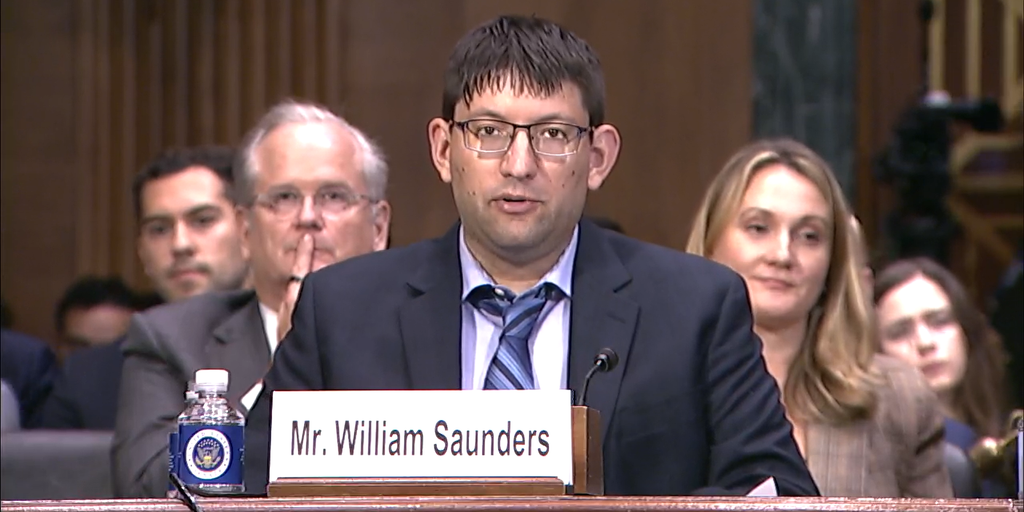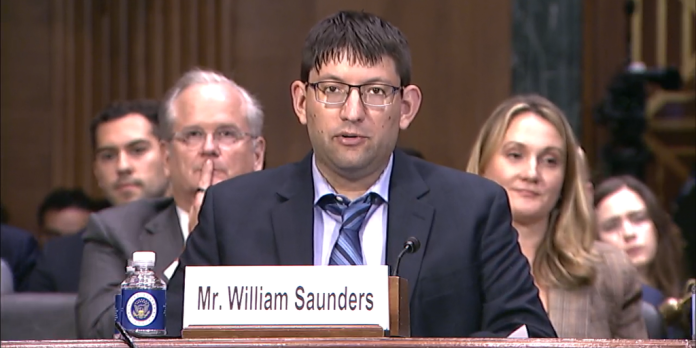Table of Contents
Toggle

OpenAI’s latest GPT-o1 AI mannequin is the primary to exhibit capabilities that would help consultants in reproducing identified—and new—organic threats, a former firm insider informed U.S. Senators this week.
“OpenAI’s new AI system is the primary system to indicate steps in direction of organic weapons threat, as it’s able to serving to consultants in planning to breed a identified organic risk,” William Saunders, a former member of technical employees at OpenAI, informed the Senate Committee on the Judiciary Subcommittee on Privateness, Know-how, & the Legislation.
This functionality, he warned, carries the potential for “catastrophic hurt” if AGI methods are developed with out correct safeguards.
Specialists additionally testified that synthetic intelligence is evolving so rapidly {that a} probably treacherous benchmark generally known as Synthetic Basic Intelligence looms on the close to horizon. On the AGI stage, AI methods can match human intelligence throughout a variety of cognitive duties and be taught autonomously. If a publicly out there system can perceive biology and develop new weapons with out correct oversight, the potential for malicious customers to trigger critical hurt grows exponentially.
“AI firms are making speedy progress in direction of constructing AGI,” Saunders informed the Senate Committee. “It’s believable that an AGI system could possibly be in-built as little as three years.”
Helen Toner—who was additionally a part of the OpenAI board and voted in favor of firing co-founder and CEO Sam Altman—can also be anticipating to see AGI sooner slightly than later. “Even when the shortest estimates change into incorrect, the concept of human-level AI being developed within the subsequent decade or two needs to be seen as an actual risk that necessitates vital preparatory motion now,” she testified.
Saunders, who labored at OpenAI for 3 years, highlighted the corporate’s current announcement of GPT-o1, an AI system that “handed vital milestones” in its capabilities. As reported by Decrypt, even OpenAI stated it determined to stem away from the standard numerical enhance within the GPT variations, as a result of this mannequin exhibited new capabilities that made it honest to see it not simply as an improve, however as an evolution—a model new sort of mannequin with totally different abilities.
Saunders can also be involved concerning the lack of ample security measures and oversight in AGI improvement. He identified that “Nobody is aware of how to make sure that AGI methods can be secure and managed,” and criticized OpenAI for its new method towards secure AI improvement, caring extra about profitability than security.
“Whereas OpenAI has pioneered elements of this testing, they’ve additionally repeatedly prioritized deployment over rigor,” he cautioned. “I imagine there’s a actual threat they are going to miss essential harmful capabilities in future AI methods.”
The testimony additionally confirmed among the inner challenges at OpenAI, particularly those that got here to mild after Altman’s ouster. “The Superalignment group at OpenAI, tasked with creating approaches to regulate AGI, now not exists. Its leaders and lots of key researchers resigned after struggling to get the assets they wanted,” he stated.
His phrases solely add one other brick within the wall of complaints and warnings that AI security consultants have been making about OpenAI’s method. Ilya Sutskever, who co-founded OpenAI and performed a key function in firing Altman, resigned after the launch of GPT-4o and based Secure Superintelligence Inc.
OpenAI co-founder John Schulman and its head of alignment, Jan Leike, left the corporate to affix rival Anthropic, with Leike saying that underneath Altman’s management, security “took a backseat to shiny merchandise.”
Likewise, former OpenAI board members Toner and Tasha McCauley wrote an op-ed revealed by The Economist, arguing that Sam Altman was prioritizing income over accountable AI improvement, hiding key developments from the board, and fostering a poisonous setting within the firm.
In his assertion, Saunders known as for pressing regulatory motion, emphasizing the necessity for clear security measures in AI improvement, not simply from the businesses however from impartial entities. He additionally harassed the significance of whistleblower protections within the tech trade.
The previous OpenAI staffer highlighted the broader implications of AGI improvement, together with the potential to entrench current inequalities and facilitate manipulation and misinformation. Saunders has additionally warned that the “lack of management of autonomous AI methods” might probably end in “human extinction.”
Edited by Josh Quittner and Andrew Hayward
Typically Clever Publication
A weekly AI journey narrated by Gen, a generative AI mannequin.











































